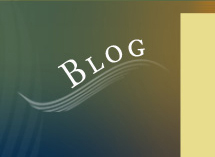Water words that work
I just came back from River Network's national conference, River Rally. A truly reinvigorating experience. And one thing that has really stuck in my mind as a great tool, and a something to chew on for communicators and educators alike, is how to speak to that larger American public. Eric Eckl, the man behind Water Words that Work, taught us some new word-tools to help when we are talking in the public eye.
I learned that 30% of the general public actually might be generally knowledgeable but just not speaking up--another 40% just need to hear about it to be sympathetic. I learned that 75% of Americans have a high school degree and no more. I learned that one out of four Americans knows what watershed or biodiversity means. One out of four doesn't know the term sprawl. Water quality to many is the taste, not the pollution level. Eckl told of one man who said to him, "The water quality here is fine, it's just got polluted." I work in the Watersheds Program, and am supposed to be an educator for many Sierrans. What to do when they don't even know what my program means.
Eckl has 24 words that work, and a hit list of words not to use (as well as words to replace them). It is a great tool for anyone working in the water world or even the environmental world. And he will come speak and consult for a small, nonprofit budget sized fee.
Check the site out: www.waterwordsthatwork.com for a great presentation on the basics of communications.














audience
great slideshow
thanks again for sharing the slideshow (and thanks to Catherine for figuring out how we can make it available on this blog!). i just watched it and found it really illuminating. i had to laugh as earlier today I was reviewing some of our project materials and trying to think about a better way to write them so that they aren't so wonky, jargony...or at least how to make them more user friendly and easy to absorb. i think for those of us who work in the field of conservation it can be a bit easy to include terms that seem to be in general use when they really aren't (to wit: biodiversity, open space). the slideshow was a good reminder and done in a fun way. thanks again!
jesikah maria ross, Co-Project Director Saving The Sierra: Voices of Conservtion In Action
words of wisdom
thanks for the info on the words that work. i agree--it's usually about framing and language when it comes to connecting with others about what we care about and why it's important to know and do more. i'm not sure if i'm more surprised that 1/4 folks does know what biodiversity means or that 1/4 doesn't not the term sprawl. interesting. thanks for sharing!
jesikah maria ross, Co-Project Director Saving The Sierra: Voices of Conservtion In Action
Post new comment